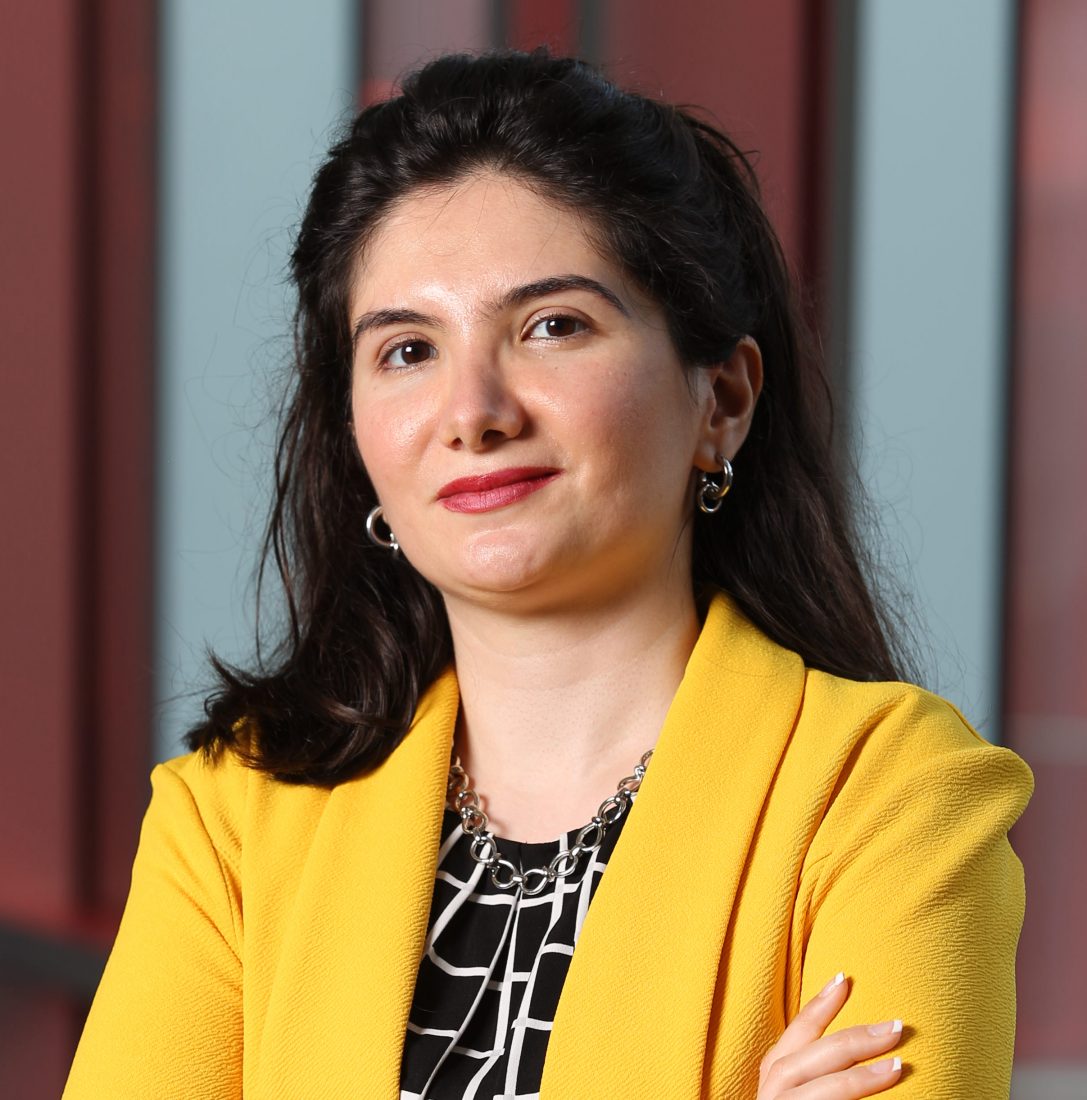Science and Mathematics
Physics Colloquium: Zohreh Davoudi
October 19, 2023 at 3:30pm – 4:30pm EDT
Physics Building, 202/204
This event has already occurred. The information may no longer be valid.

The Syracuse University Physics Department is pleased to welcome Dr. Zohreh Davoudi, an Associate Professor of Physics at the University of Maryland, College Park.
Davoudi received her B.Sc. and M.Sc. from Sharif University of Technology in Tehran, Iran, before moving to the U.S. to continue her studies in Theoretical Physics at the University of Washington in Seattle. After receiving her Ph.D. in 2014, she joined Massachusetts Institute of Technology’s Center for Theoretical Physics as a post-doctoral research associate. She was appointed to a faculty position at the Department of Physics at the University of Maryland in 2017. Her work is recognized by a Wilson Award for Excellence in Lattice Gauge Theory, a Sloan Research Fellowship, and a Department of Energy’s Early Career Award. Beside her appointment at the Physics Department, Davoudi is a fellow of Maryland Center for Fundamental Physics, and a senior investigator and Associate Director for Education at the National Science Foundation’s Quantum Leap Challenge Institute for Robust Quantum Simulation. In 2023, she was further appointed a Fellow of the Joint Center for Quantum Information and Computer Science (QuICS) at the University of Maryland.
Abstract:
“Simulating Nature’s Fundamental Interactions: From Classical Computations to Quantum Simulations”
The strong force in nature, which is at the core of nuclear-physics phenomena, is described by the theory of quantum chromodynamics (QCD). It has long generated an active and growing field of research and discovery. In fact, despite the development of QCD more than half a century ago, plenty of questions remain open into the 21st century: What does the phase diagram of matter governed by strong interactions, such as the interior of neutron stars, look like? How does matter evolve and thermalize after energetic processes such as after the Big Bang or in particle colliders? How do elementary particles in QCD and their interactions give rise to the complex structure of a proton or a nucleus, and their response to various probes? A successful program called lattice QCD has enabled a first-principles look into some properties of matter with the aid of classical computing. At the same time, we have yet to come up with a more powerful computational tool to predict the complex dynamics of matter from the underlying interactions. Can a large reliable (digital or analog) quantum simulator eventually enable studies of the strong force? What does a quantum simulator have to offer to simulate QCD, and how far away are we from such a dream? In this talk, Dr. Davoudi will describe a vision for how we may go on a journey toward quantum simulating QCD, by taking insights from early to late developments of lattice QCD and its achievements, by motivating the need for novel theoretical, algorithmic, and hardware approaches to quantum-simulating this unique problem, and by providing examples of the early steps taken to date in establishing a quantum-computational lattice-QCD program.
This event was first published on September 5, 2023 and last updated on September 14, 2023.
Event Details
- Category
- Science and Mathematics
- Type
- Talks
- Region
- Campus
- Open to
- Public
- Organizer
- CAS-Department of Physics
- Contact
- Meghan Murphy
phyadmin@syr.edu
(315) 443-3901
- Accessibility
- Contact Meghan Murphy to request accommodations
